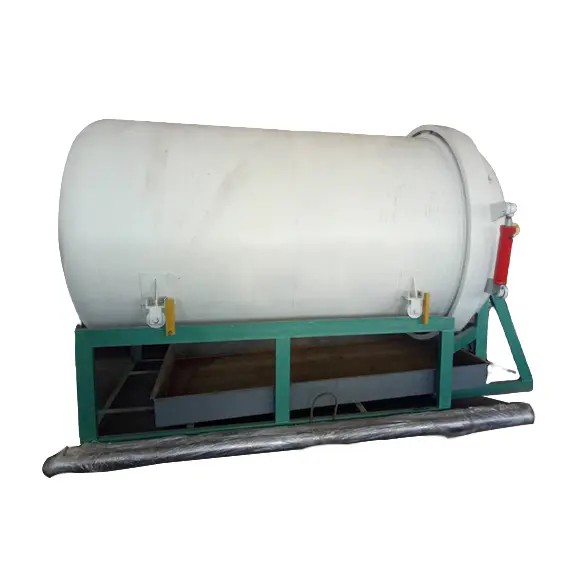Dec . 03, 2024 22:28 Back to list
OEM Plate Press Filter for Efficient Liquid Filtration Solutions and Industrial Applications
Understanding OEM Plate Press Filters and Their Applications
In industrial processes and wastewater treatment, effective separation and filtration are crucial for maintaining operational efficiency and environmental compliance. One of the most reliable solutions for solid-liquid separation is the OEM (Original Equipment Manufacturer) plate press filter. This equipment stands out for its versatility and efficiency, making it a preferred choice across various industries.
What is an OEM Plate Press Filter?
An OEM plate press filter is a type of mechanical filter used in various processes where solid-liquid separation is required. The design typically consists of a series of paired plates that create a chamber for the material to be filtered. When the mixture enters the filter, pressure is applied, forcing the liquid through the filter media while retaining the solid particles inside the chambers formed by the plates.
The OEM designation indicates that these filters are designed and manufactured according to specific requirements or standards set by the equipment manufacturer, ensuring that they meet the precise needs of industrial applications.
How Does it Work?
The operation of a plate press filter involves several key steps
1. Preparation The feed pump introduces the slurry into the filter chamber. This mixture consists of solid particles suspended in a liquid.
2. Filtration As the feed enters, pressure is applied. The liquid component passes through the filter cloth or membrane, while the solid particles are retained within the chamber.
3. Cake Formation Over time, the retained solids form a “cake” that builds up, which can enhance the filtering process by creating a layer that aids in the filtration.
4. Cake Discharge Once the desired level of filtration has been achieved, the pressure is released. The plates are then separated, allowing for the removal of the solid cake.
5. Cleaning and Maintenance Regular maintenance is crucial for optimal performance. This includes cleaning the filter plates and inspecting the seals to prevent leaks and inefficiencies.
oem plate press filter

Applications of OEM Plate Press Filters
OEM plate press filters find applications in a variety of sectors, including
1. Wastewater Treatment These filters are extensively used in treatment plants to separate solid waste from effluent, ensuring that the discharged water meets regulatory standards before being released back into the environment.
2. Food and Beverage Industry They play a critical role in processing juice, wine, and other beverages by clarifying mixtures and removing impurities, which enhances product quality and shelf life.
3. Mining and Mineral Processing In this sector, plate press filters are used to recover valuable minerals from slurry, reducing waste and improving the overall efficiency of the mining process.
4. Pharmaceuticals The stringent quality requirements in this industry mean that plate press filters are employed to ensure that active ingredients are purified from solvents and other residues effectively.
5. Chemical Processing These filters facilitate the separation of solid catalysts and by-products in various chemical processes, improving yield and reducing operational costs.
Advantages of Using OEM Plate Press Filters
The adoption of OEM plate press filters offers numerous advantages
- Efficiency They provide high separation efficiency, which results in a cleaner product and less waste. - Customization Being OEM products, these filters can be tailored to meet specific operational requirements, including size, pressure rating, and material compatibility. - Cost-Effectiveness While the initial investment may be significant, the reduction in waste and the ability to recover valuable materials make them cost-effective in the long run. - Environmentally Friendly By effectively managing waste and minimizing environmental impact, these filters aid companies in meeting sustainability goals.
Conclusion
OEM plate press filters represent a vital component in many industrial processes, combining advanced technology with practical applications. Their ability to efficiently separate solids from liquids makes them invaluable in ensuring product quality and compliance with environmental regulations. As industries continue to evolve, the importance of effective filtration systems, like the OEM plate press filter, will only grow, paving the way for innovative solutions in the field of solid-liquid separation.
-
High-Efficiency Peanut Oil Refined Machine for Quality Oil Production Leading Exporters & Companies
NewsJul.08,2025
-
High Efficiency Sunflower Seed Oil Press – Leading Cooking Oil Press Machine Factories & Suppliers
NewsJul.08,2025
-
High-Efficiency Soybean Oil Press Machine – Leading Exporters & Reliable Companies
NewsJul.07,2025
-
High-Efficiency Seed to Oil Extractor – Reliable Extraction Machinery for Your Business
NewsJul.07,2025
-
High-Quality Pressing Screw of Oil Expeller for Efficient Oil Extraction Leading Exporters & Manufacturers
NewsJul.06,2025
-
High-Efficiency Essential Oil Extraction Machine Trusted Exporters & Companies
NewsJul.06,2025
